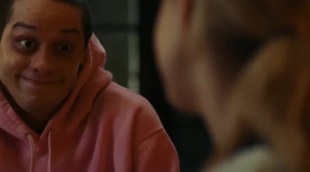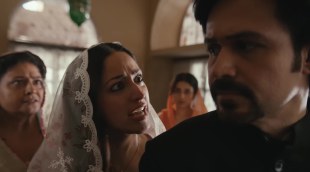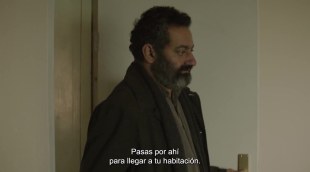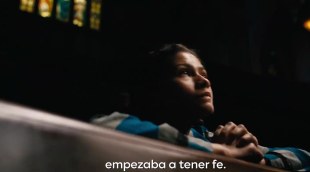In the immortal words of Issa Rae, congratulations to those men. The 92nd edition of the Academy Awards will take place at the Dolby Theatre in Hollywood on the 9th February and, despite a record number of female directors making films in 2019, the line-up for Best Director is composed entirely of men. Five men, to be exact. The same amount of women to be nominated in that same category over the 92 years of Oscars ceremonies.

This skewed statistic is not to say that the candidates for the Oscar for Best Director are not worthy of the award. Martin Scorsese ('The Irishman'), Bong Joon-ho ('Parasite'), Quentin Tarantino ('Once Upon a Time in...Hollywood'), Todd Phillips ('Joker') and Sam Mendes ('1917') are undeniably accomplished filmmakers operating at the top of their game. Nonetheless, when one considers that a mere 5 women have ever been nominated in the category, with only one actually taking the award home (Kathryn Bigelow for 'The Hurt Locker' in 2008), in tandem with the fact that there were several highly commended films in the past year directed by women, with Greta Gerwig's 'Little Women' one of the most highly nominated pieces of cinema with six Oscar candidacies, it is difficult to comprehend why the image of an "Oscar-worthy" director still seems to be imbued with a sense of masculinity.
There is an ongoing debate as to whether adding a female director to the running just for the sake of diversity is more reductive than progressive, falling into the realm of tokenism and box-ticking that belittles their achievements just as much as no nomination at all does. Yet, this attitude is underpinned by the subtly misogynistic assumption that, had a female director been nominated, it would have been for the sole purpose of ticking a box, not because these female-led films have any right to be nominated in themselves. With the incredible critical reception of films such as 'Little Women' and 'Booksmart' this year, both of which actually beat 'Once Upon a Time in...Hollywood' in their Rotten Tomatoes ratings, seeing a woman's name amongst the directorial nominees would not have felt like a symbolic token designed to placate the angry feminists of the world. It would have been a natural response, an expected response, to grant recognition to some of this year's most popular films, regardless of the gender of its director. It is the conspicuous absence of women from the category that feels like more of a political comment from the Academy (and a backwards thinking one, at that) than the inclusion of them would.
With that in mind, we've put together a list of 10 outstanding female directors who were equally deserving of a place in the highly-coveted category this year. Though this year they've gone unnoticed by the Academy, hopefully their films will continue to enchant and inspire the public until the #OscarsSoWhite hashtag and debates about gender inequality within Hollywood are relics of the past.
1 Greta Gerwig - 'Little Women'

The absence of Greta Gerwig's name from the roll of candidates is perhaps the most obvious snub of the list. Gerwig's refreshing yet nostalgic take on Louisa May Alcott's classic novel was applauded by critics for the stunning visuals, pitch-perfect performances and subtly feminist edge. With six Oscar nominations under its belt, including Best Adapted Screenplay and Best Actress, it's one of the most spoken about films in this year's awards season. Greta Gerwig has established herself as one of the most raved-about names in filmmaking; she has directed two feature length projects and both of them have ended up receiving nods from the Academy, with 'Lady Bird' actually landing Gerwig one of those rare Best Director nominations in 2018. 'Little Women' is just as effective at creating mood as Tarantino's sun-kissed reimagining of Hollywood or Scorsese's seedy take on mobsters, leading many to believe that her name was sure to make an appearance amongst the nominees for Best Directors. Much like Amy March watching Laurie obsess over her sister for years, however, we were severely disappointed.
2 Lulu Wang - 'The Farewell'

Awkafina took home the Golden Globe Award for the Best Actress in a Comedy or Musical for her portrayal of Billi, a young Asian-American woman who struggles with the cultural custom of keeping her grandmother's terminal illness a secret from her. Awkafina's performance was not the only aspect of 'The Farewell' raking in the praise, however, with Lulu Wang also receiving considerable applause for her direction of the highly original story. Ignoring 'The Farewell' unfortunately feels as though both the Academy's tendency to pass over female directors and the famed #OscarsSoWhite hashtag had a rather unpleasant baby, leaving Wang's feature-length debut nominated for a single Academy Award for Best Original Score.
3 Lorene Scarfaria - 'Hustlers'

'Hustlers', Lorene Scarfaria's glitzy, rich vision of strippers striking back, received a double blow when the Oscar nominations were announced earlier this month, with Lorene Scarfaria missing out on a nomination for Best Director and Jennifer Lopez being overlooked for Best Supporting Actress. 'Hustlers' is an incredibly well-made crime thriller yet, in many conversations, has been dismissed as an entertaining little flick about female strippers. Who knows, perhaps if Martin Scorsese had directed it, 'Hustlers' would have been advertised as an edgy and original look into the dark, sensual side of New York. What we do know, however, is that Lorene Scarfaria certainly deserved more attention than she got from this year's Academy Awards. As did Jenny from the Block.
4 Melina Matsoukas - 'Queen & Slim'

Melina Matsoukas' triumphant interpretation of police brutality and the African-American community was completely ignored by this year's voters, receiving a grand total of 0 nominations. According to Matsoukas herself when she spoke to Variety, the shortfall of attention given to 'Queen & Slim' this awards season was not for a lack of effort on her part. When it came to campaigning for the Golden Globes, for example, Matsoukas organised three screenings for the Hollywood Foreign Press Association to attend, yet hardly any members showed up. This blatant reluctance to even watch the movie before disregarding it is a sad testament to how diverse works are still facing prejudice in Hollywood.
5 Olivia Wilde - 'Booksmart'

Okay, so perhaps suggesting that a comedy film about two brainy high school seniors deciding to have one night of wild freedom before parting ways for college would send several members of the voting board into shock. Yet, Olivia Wilde's directorial debut was incredibly well-received by critics and boasts a 97% rating on Rotten Tomatoes, where it is lauded for its progressive tone, laugh-out-loud comedy and colourful direction. People enjoyed 'Booksmart', whether or not they think the theme of two teenage girls finding themselves is as important as mobsters in the 1950s, and Olivia Wilde excelled at delivering one of the simultaneously funniest and most heartfelt films of the year. Amy and Molly deserved their night of adventure, and they deserved some nominations, too.
6 Chinonye Chukwu - 'Clemency'

Like 'Queen & Slim', Chinonye Chukwu's 'Clemency' also explores the complexities of race within the North American justice system, but from the perspective of both accused and accuser when a black warden is made responsible for executing inmates of colour. It's a hugely original insight into a topic that has flooded media outlets over the past decade, and for good reason. Perhaps a nomination for Chukwu would have sent a message about how brave filmmaking combined with pressing topics is what cinema needs in the 21st century. Instead, Chukwu joined the ranks of women that went unnoticed in this year's ceremony.
7 Marielle Heller - 'A Beautiful Day in the Neighborhood'

Fans of Tom Hanks were delighted when it was announced that the actor would be stepping back into the awards race after 19 years, with Hanks' Best Supporting Actor nomination for portraying children's TV presenter Fred Rogers marking his first candidacy since he was up for Best Actor in 2001 for his role in 'Cast Away'. Yet, the director of this heartwarming picture, Marielle Heller, has been lost in the wave of praise directed at Hanks following this news. It's a shame that after directing a film that so carefully avoids being sickly whilst still managing to be life-affirming, Heller's directorial achievements are being overshadowed by the achievements of her leading actor.
8 Alma Har'el - 'Honey Boy'

Alma Har'el, director of 'Honey Boy', the autobiographical film penned by Shia LaBeouf, was one of the first directors to speak out following the lack of diversity in the Golden Globes, stating that people should "not look for justice in the awards system" in which representation is an afterthought, and it seems that the Academy Awards is the next big event to snub both Har'el and female directors in general. Despite being nominated across several other ceremonies such as the Indie Spirit Awards and the Directors Guild of America Awards, Har'el's heartbreaking portrait of fathers and sons won't be in the running to take home any golden statuettes at the upcoming ceremony.
9 Céline Sciamma - 'Portrait of a Lady on Fire'

This beautiful historical drama about a female artist sent to paint a portrait of an aristocrat's reluctant betrothed didn't even get a nod in the Best International Feature Film category, let alone best director, although anyone who has seen the breathtaking imagery and beautifully delivered dialogue in Céline Sciamma's 'Portrait of a Lady on Fire' would be hard-pressed to deny that she deserved nominations in both.
10 Kasi Lemmons - 'Harriet'

Following the drama that went down after the predominantly white BAFTA awards asked leading actress Cynthia Erivo to perform after not granting her a nomination, the Oscars wised up to the actress's incredible talent in taking on the role of abolitionist Harriet Tubman and selected her as one of the nominees for Best Actress. However, the director of 'Harriet', Kasi Lemmons, did not receive similar recognition for her role in the director's seat. Erivo was quick to call out the lack of racial diversity across awards shows in a conversation with The New York Times, and manages to sum up the injustice of such unequal statistics with her assertion: "It's not enough I'm the only one. It just isn't".










